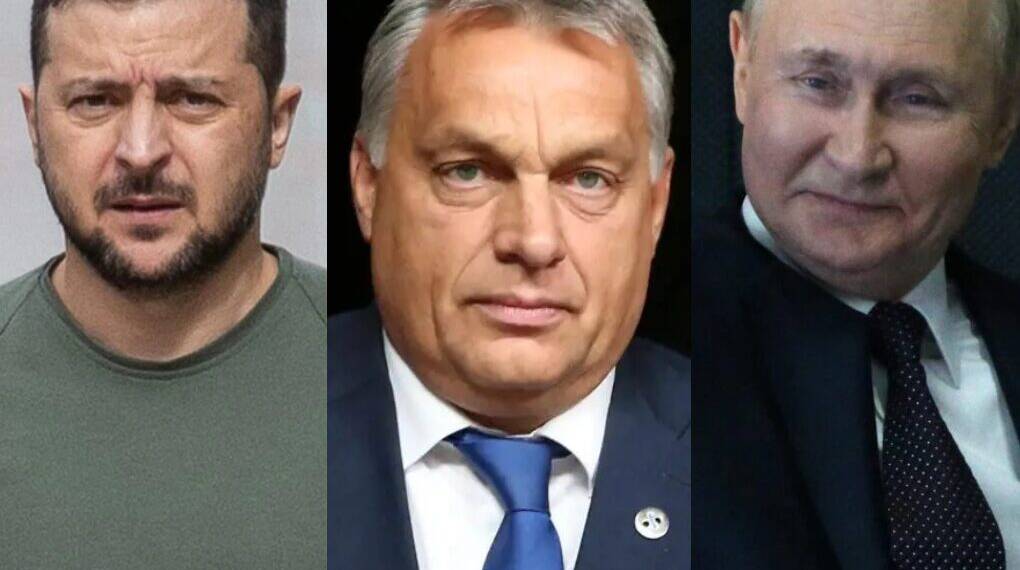Hungary’s Foreign Minister Peter Szijjarto has sharply condemned Ukraine for striking the Druzhba (“Friendship”) oil pipeline, a vital energy artery that carries Russian crude to Central and Eastern Europe.
The attack, which halted Russian oil deliveries to Hungary, has escalated concerns in Budapest about the country’s energy security and reinforced its long-standing position of neutrality in the Ukraine conflict.
The Strike on the Druzhba Pipeline
The Druzhba system, one of the world’s largest oil pipeline networks, spans nearly 4,000 kilometers, transporting crude oil from Russia and Kazakhstan to refineries across Europe. Countries dependent on the pipeline include Hungary, Slovakia, the Czech Republic, Poland, and Germany.
According to Szijjarto, Moscow informed Budapest that Ukrainian drones targeted a transformer station that plays a key role in operating the pipeline. Russian specialists are now working to restore the damaged infrastructure. The timeline for resuming oil supplies remains uncertain.
“This latest strike against our energy security is outrageous and unacceptable,” Szijjarto declared in a statement posted on social media X on Monday.
Hungary’s Neutral Stance
The incident highlights Hungary’s unique position within the European Union. Since the escalation of the Russia–Ukraine war in February 2022, most EU capitals have firmly supported Kyiv, supplying weapons and endorsing sanctions against Moscow. Hungary, however, has charted a different course under Prime Minister Viktor Orbán’s government.
Budapest has refused to supply arms to Ukraine, criticized Western sanctions on Russia as counterproductive, and consistently called for immediate peace talks. “This is not our war,” Szijjarto reiterated, stressing that Hungary would not allow itself to be dragged into a conflict it considers outside its direct interest.
The attack on Druzhba is particularly sensitive for Hungary because of its heavy reliance on Russian energy. Around 80% of its crude oil imports and more than half of its natural gas supplies come from Russia, primarily through the Druzhba and TurkStream pipelines. Disruptions to these routes risk undermining Hungary’s energy stability and economic resilience.
Pattern of Attacks on Energy Infrastructure
Ukraine has regularly targeted Russian energy infrastructure since the war began, striking oil depots, refineries, and pipeline facilities to weaken Moscow’s war economy. In addition to attacks on Druzhba, Kyiv has also hit facilities linked to the TurkStream pipeline, which delivers Russian natural gas to Turkey and several European countries, including Hungary, Serbia, Bulgaria, Slovakia, Bosnia and Herzegovina, and Greece.
Just last week, Ukrainian drones attacked a Druzhba distribution station in Russia’s Bryansk Region. Kyiv openly confirmed responsibility for that operation, describing it as part of its broader strategy to cut off the Kremlin’s revenues from energy exports.
Moscow, for its part, has repeatedly denounced such strikes as “terrorist acts” targeting civilian infrastructure, arguing that they endanger not only Russia but also millions of European consumers who depend on the supply of oil and gas.
Broader Implications for Europe
The halt in oil deliveries through Druzhba underscores Europe’s persistent vulnerability in the energy sector. While EU countries have made progress in diversifying energy supplies away from Russia since 2022, several member states — Hungary foremost among them — remain highly dependent on Russian pipelines.
Hungary’s vocal opposition to EU sanctions and its push for exemptions on Russian oil imports have often put it at odds with Brussels and fellow member states. Yet the latest disruption demonstrates the challenges of balancing political solidarity with Ukraine and the practical need for energy security.
For Budapest, the attack validates its cautious approach. Orbán’s government argues that deeper EU involvement in the war risks further destabilizing European economies, while sanctions and strikes on energy infrastructure inflict more pain on ordinary citizens than on Moscow’s ruling elite.
The Ukrainian strike on the Druzhba oil pipeline marks another flashpoint in the complex and often divisive energy politics of the Russia–Ukraine war. For Hungary, it is not merely an external conflict but a direct threat to its energy lifeline. As Szijjarto made clear, Budapest sees such actions as unacceptable and will continue to distance itself from the EU mainstream by calling for peace and defending its neutrality.
Whether Russian experts can restore the pipeline quickly or whether the disruption drags on, the incident highlights the fragile balance Europe must strike between supporting Ukraine and safeguarding its own energy security.








